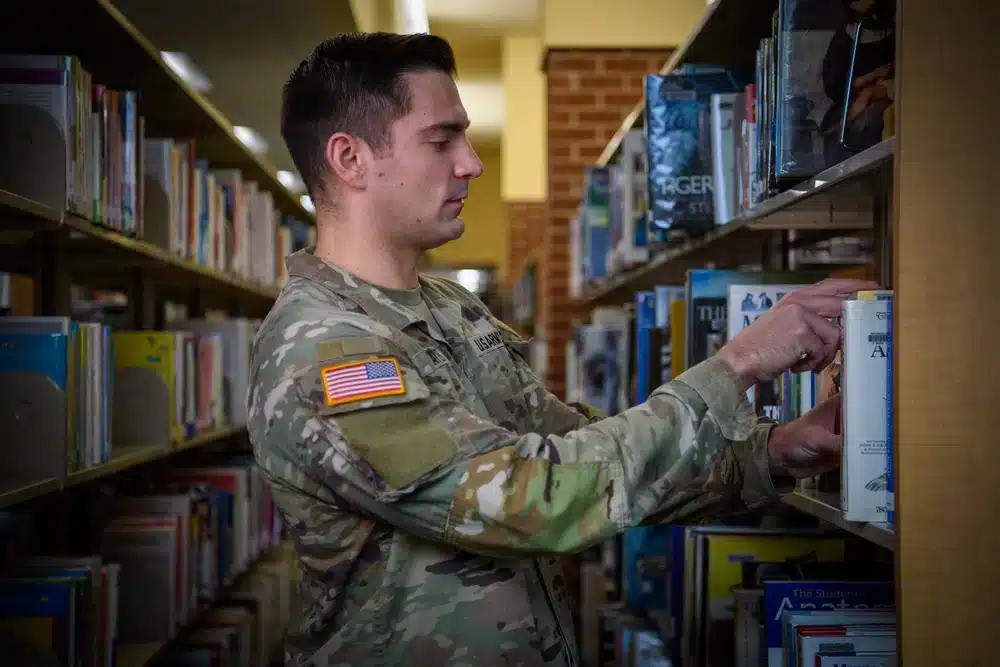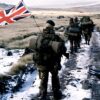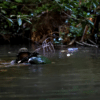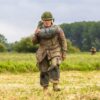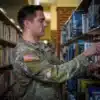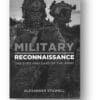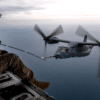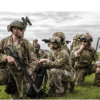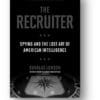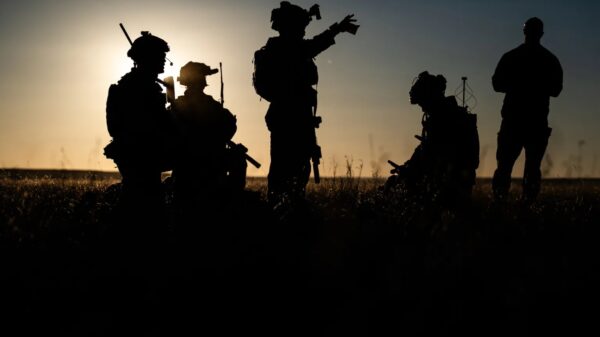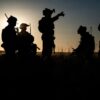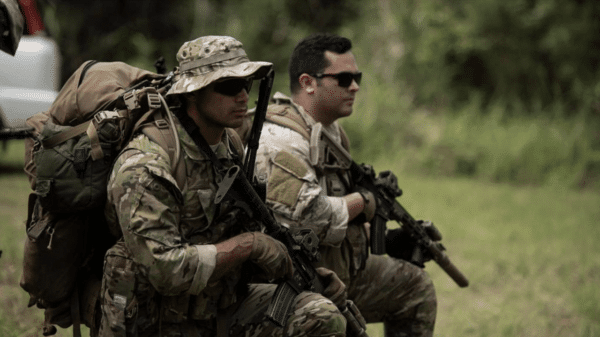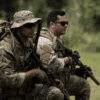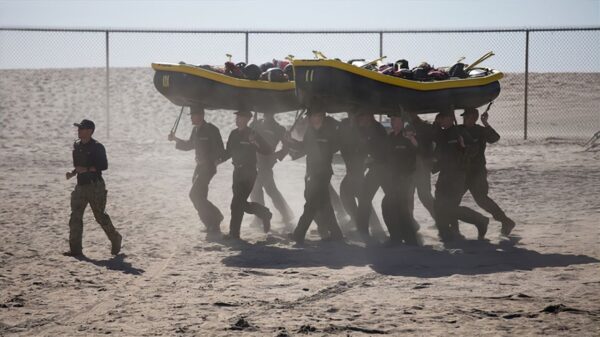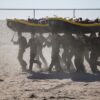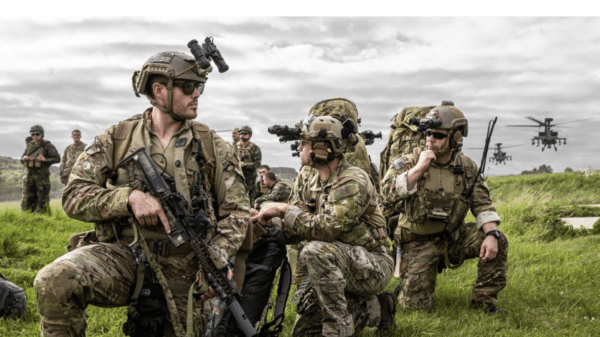David P. Oakley, University of South Florida, Tampa, Florida, USA
Mike Obadal, Independent Scholar, Washington, D.C., USA
For over a decade, U.S. military leadership has acknowledged inadequacy in how it intellectually prepares practitioners to face a dynamic and uncertain environment. Despite this acknowledgment, the persistent claim of a broken Professional Military Education (PME) system is proof of either an unresponsive PME or that PME is serving as a useful scapegoat to shield addressing other fundamental issues.[i] There is some truth in the former, but the latter is what has stifled change. Although it is convenient to solely blame PME institutions and their faculty, it is also unfair because it ignores organizational and cultural issues within the military that affect how education is perceived and incorporated into organizational and individual development, thus limiting its value. If the U.S. military wants to harness education to nurture the practitioner, they must appreciate the organizational and cultural issues that currently limit its utility.
CONTACT David P. Oakley, davidpoakley@usf.edu | Mike Obadal, mike.obadal@gmail.com
The views expressed in this publication are entirely those of the authors and do not necessarily reflect the views, policy, or position of the University of South Florida, United States Government, Department of Defense, or United States Special Operations Command. © 2024 Arizona State University
First, military leadership must not only acknowledge the failure of an “episodic” approach but prioritize and resource recurring educational opportunities that complement the needed year-long educational experiences. Second, they must appreciate that, while practitioners require training and education, these are distinct and serve different yet complementary purposes. Finally, and most important, they must prioritize intellectual development to the same degree they prioritize physical fitness and incorporate “intellectualism” as a military value.
This article, co-written by an experienced Special Operations Forces (SOF) practitioner/leader (Obadal) and an academic/former practitioner (Oakley), first considers the necessity of educating the SOF practitioner in the current security environment.[i] Recurring education is essential for SOF practitioners considering SOF’s mission and how leaders anticipate employing SOF in the current security environment.[ii] Although this section focuses on the SOF practitioner, the need for recurring education to nurture the practitioner is not limited to SOF and the failure to adequately educate occurs in SOF and the broader military. The article then considers some of the organizational and cultural reasons why the military has been unsuccessful in exploiting education for the benefit of the practitioner. It concludes with recommendations focused not on PME content, but on the need to adjust the way the military views education and how it integrates education in individual and collective development.
A SOF Leader’s Perspective on the Security Environment and the Ingredients for a Successful Practitioner[iii]
It is not a military secret that the attention of the Department of Defense shifted over the last few years to the strategic problems of Russian disruption and a rise in China’s global status. In fact, unclassified strategic documents from the current and previous administrations demand that the Pentagon shift its focus towards strategic competition.[iv] There is a departure from counterterrorism as the driving factor in almost every aspect of the military: force design, global posture, weapons development, and fiscal priority. We are trading V-shaped hulls for autonomous vehicles, close-quarters battle for cyber operations, and predator drones for satellite technology.[v] Further, there is widespread recognition among military professionals that the United States will struggle to achieve domain dominance, which over the last twenty years was arguably secured with logistical but no significant adversarial challenges.[vi] The United States should be prepared to accept and overcome challenges such as the denial of air superiority through 5th generation fighters and advanced air defenses, disruptions in the maritime domain through unmanned subsurface vehicles and long-range missiles, sporadic space support due to jamming and counter-satellite capabilities, and challenges in the information domain driven by rapidly evolving policies and advanced programs. Further, Russia and China are working to move past unmanned systems by automating military platforms and actions, while the United States struggles to rectify its own ethics and morals regarding the lethal decision loop.[vii]
Beyond technology, another currency in this strategic competition is global presence, providing influence and access. SOF are more and more often the “front-line” in this effort, thanks to two decades of expansion. Since 2001, U.S. Special Operations Command’s numbers have doubled both in force structure and global deployments, with its members currently in about 80% of countries around the world.[viii] The partnerships, intelligence and influence they cultivate in these countries are essential to global competition, and critical if conflict breaks out. Leaders managing these relationships also navigate an environment rightfully controlled by diplomacy and intelligence professionals. Between their partnerships, their American counterparts, and Russian and Chinese presence, leaders must possess critical thinking and communications skills that surpass what standard military training or experience provides. They face situations not addressed in doctrine, partners not adherent to decision matrices, and adversaries utilizing highly unconventional means of competition.
For decades, the first “Special Operations Truth” remained intact: Humans are more important than hardware.[ix] In special operations, humans are far less reliant on the latest weapons and platforms for very practical reasons. Employment of major weapons systems is not the mission of most special operations units. Certainly, they use the most advanced equipment they can, but these center on situational awareness, transportation, and precise lethal engagement and tend to be personal kit, not pacing items. Most core activities center on “human terrain” instead of actual terrain. Counterinsurgency, unconventional warfare, civil affairs, security force assistance, and information operations all rely heavily on human contact and require exceptional interpersonal interaction. Advanced hardware for special operators is important, but the weapon system itself is the individual – required to navigate ambiguous environments with a broad mission statement. Preparation for SOF employment is about ensuring the individual makes the right decision. Effectiveness is gained by making good decisions in fluid human environments.
As a special operations commander from major to colonel (Obadal), I never had my entire formation in one geographic location. Globally dispersed, my subordinate leaders spent 99% of their time making their own decisions. I relied on them to make sound decisions without direct or daily command oversight. Lack of effective communications and speed of decision requirements had much to do with this, a common issue (not problem) that special operations professionals encounter.
In the short periods of time that I could speak directly with my leaders, effectiveness was weighed by how well and quickly they could encapsulate numerous dynamic elements into a single coherent message that included: 1) the decision they made or the direction they were taking; 2) how they incorporated the views of other U.S. and multinational stakeholders in crafting a plan; 3) the risks associated with every option, including the risk of inaction; 4) how their decision fit into the larger operational and strategic goals of the task force, combatant command, and U.S. policy. These men and women were special operations non-commissioned officers, warrant officers, and mid-grade officers who we thrust into environments that sometimes drew on their training, but always demanded their critical analysis.
One of my non-commissioned officers served as our sole representative to the U.S. Embassy in an important regional partner which had suffered numerous terror-related setbacks and was enduring political upheaval. During one of my visits, senior civilian and military officials on the country team lauded his performance and expressed the criticality of his input. This was unremarkable, as U.S. leaders in numerous countries commonly demonstrated appreciation for special operators working in embassies. What struck me was the soldier’s own assessment. He attributed his success to his recently completed Joint Special Operations Master of Arts (JSOMA) program at National Defense University: “Without the combination of education on the National Security process, and the focus on critical thinking, I’d be lost here.”
While he would not have been completely lost, his point drives home the criticality of three elements: training, experience, and education. In special operations, education likely takes a higher priority than other military disciplines due simply to the environment and the increased need for critical thinking. Balancing it with training is not taking away lethality or readiness; in fact, it increases the ability of leaders to operate more effectively.
If leadership pronouncements and strategic documents identify the importance of PME and experienced leaders highlight the value of education for operational effectiveness; why do PME problems persist? Is it that PME institutions are not listening? Although PME is not perfect and there is room for improvement, we believe the fundamental issue is not PME but military culture, what it values, and how it incorporates education into individual and organizational development.
The Importance of Differentiating Between Training and Education
Although military leaders identify the need for “strategically-minded warfighters or applied strategists,” the decade-long deafening echo signals military leadership’s assessment that they are not developing the practitioners required for success in the contemporary security environment.[x] This failure is partly due to a misappreciation of the purpose of education and a conflation of education with training.
Training is focused on the individual or unit—by design pointed inward to elicit a specific behavior in specific situations. Training is critical to effective military formations: without training, units and individuals would rapidly break down. At the tactical level, it drives behavior to employ weapons, move supplies, and achieve tactical objectives. At the organizational level, training allows senior leaders to understand the complex systems that drive military momentum—training on force structure, fiscal practices, and joint planning. Training prepares leaders to employ military tools in combat situations.
Education is focused outward, to elicit changing behavior based on an understanding of changing situations (or an appreciation of initial misunderstanding). At the tactical levels, education largely occurs through exposure. Consider a deployed unit months into a counterinsurgency deployment. They understand the population’s behaviors, the enemy tendencies, and can better appreciate changes in the environment. Although this “learning by probing” or “learning by failure” will always occur, the lack of education prior to the deployment often makes overcoming ignorance disruptive and costly. At the higher levels, formal education provides senior leaders with the ability to critically break down problems that involve factors far beyond the military’s traditional optic. In other words, formal education prepares leaders to think critically in every situation.
The U.S. military’s training approach does an excellent job developing staff officers who can navigate the bureaucracy and technicians who can employ their weapon system and follow processes and procedures. Where it is found wanting is in nurturing critical thinkers who can assess the utility/limitations of force in specific socio-political environments, appreciate how those environments might respond to their actions, and assess the risk their actions potentially create.
Anyone who has served in the military appreciates that it values structure, processes/procedures, regulations, and doctrine. This is understandable for an organization that uses violence to achieve military conditions and asks people to unflinchingly put their lives at risk to orchestrate that violence. The military’s technician mentality might be sufficient when the strategic environment is viewed through the dichotomy of war/peace and what is asked of the military is limited to the use of force to achieve clear military outcomes (e.g., destroy the opponent’s army). The problem is, the U.S. military operates in complex and dynamic socio-political environments throughout the “spectrum of conflict” and its actions have effects beyond the opposition’s military.[xi] What is acceptable in the traditional war/peace dichotomy is irresponsible and dangerous in the “gray zone,” as part of “strategic competition,” when conducting “irregular warfare,” or when attempting to “shape the environment” within a combatant command’s area of responsibility.[xii]
The military’s training technicians culture often seeps into how the military views the role of education. For example, one of the authors has heard some refer to “just in time education” or experienced the calls for increasing “critical thinking” in PME curricula resulting in keyword searches to count the number of times “critical thinking” is present in syllabi. “Just in time education” is an adaptation of “just in time training” which focuses on providing the training at the moment the individual requires the skill.[xiii] Although “just in time education” is a catchy phrase, it completely ignores that education is about intellectually nurturing an individual and not providing last-minute training. “Just in time education” thinking is dangerous because it creates the impression that education is merely information needed now and not about developing attributes such as critical thinking, curiosity, empathy, and humility throughout an individual’s career.
Although educators know “just in time education” is a platitude, sadly, it accurately describes the U.S. military’s “episodic” approach to education where it provides ten months of “strategic education” circa the eighteenth year of a career. Given this “just in time education” approach, senior leaders should not be shocked by the dearth of strategic thinkers.[xiv] Is it surprising that individuals who achieved success focusing on technical acumen over nearly two decades of service cannot be rewired in a ten-month program? The astonishing thing is not that every war college/senior service college graduate is not transformed into a strategic thinker, but that some senior military leaders seem to expect such a transformation.
“Action is Achievement”
While training ensures the technician can perform their function, education is required for the professional to appreciate how the environment might respond to their action. One drawback of an overly technician mentality is a focus on the performance of the activity instead of adequately considering whether the activity might achieve the desired conditions, or the potential risks created in the environment by taking certain actions. This observation is not novel and was identified numerous times over the past two decades when the military failed to achieve its objectives in either Iraq or Afghanistan. Despite acknowledging, the military culture continues to focus more on “doing something” and rewarding action even if it is counterproductive to the ultimate goals.
The “action is achievement” culture somewhat highlights tension in the military where an attribute that is desirable in one situation is undesirable, counterproductive, and even dangerous in another situation. For example, “decisiveness” – which is essential when taking a hill or exploiting a tactical opportunity – can have disastrous consequences at the strategic level when actions are taken without sufficient thought to the secondary or tertiary effects. The problem is that military practitioners are inculcated with the belief that “decisiveness” is always good and anything not “decisive” is merely “indecisive” and is the result of poor leadership and performance. This leads to the practitioner embracing false certainty and penalizing anyone who admits ignorance or uncertainty even in an unfamiliar environment. This toxic mixture often results in rash decisions by ignorant practitioners when caution and thoughtfulness are required.
“Ivory tower nonsense” or “this academic stuff is too complicated”
A common refrain is that an academic subject is too complicated for practitioners to understand so we should avoid the topic and focus the curriculum on understanding our own organizations, processes, and procedures (i.e., building technicians). This view is condescending and underestimates the intellectual capabilities of practitioners. More importantly, it is ethically irresponsible because it sends unprepared practitioners into a dynamic and indeterminant world while asking them to “do something.” Practitioners have been trained on the technical capabilities of their weapon system and how to employ it, but they have not been adequately educated to appreciate how the environment might respond to their actions.
Can you imagine if the medical profession said, “the brain is too complex so instead of trying to increase our understanding, we will train neurosurgeons to make perfect incisions and sutures.” The “neurosurgeons” would still operate, but the focus on developing technicians who merely know how to use tools and not on neurosurgeons who understand the brain (or “environment”) would result in corpses with perfect incisions. Some might think this is an extreme analogy, but our point is that it is irresponsible to accept the description of a “dynamic threat landscape,” argue for a military role in competing on this “landscape,” and then complain that military practitioners are incapable of understanding these complicated “landscapes.”[xv] If it is too difficult to understand, then the military should remain “break in case of emergency” and not utilized to “shape the environment,” “operate in the gray zone,” or conduct ongoing irregular warfare campaigns.
Intellectualism is Not a Military Value
The U.S. military culture has long prided itself on physical “toughness” and rewards an individual who pushes through physical exhaustion to accomplish the mission. “Embracing the suck” is a figurative badge of honor that results in numerous war stories and alcohol-soaked tall-tales while the Army awards an actual badge to highlight the awardee’s physical prowess. Physical training is a morning ritual in many military units where individuals are praised for physical perseverance. How much time do these units set aside for educating the practitioner to understand the strategic environment? How often are practitioners awarded for dedicating themselves to intellectual development? If physical challenges and accomplishments are embraced and rewarded, why is it not also acceptable to intellectually challenge practitioners and expand their limits? Why is it culturally acceptable to physically exhaust practitioners, but challenging practitioners intellectually is frowned upon? We are not arguing that physical readiness is not important, but we are arguing that intellectual readiness is at least as important. If the world is complex, dynamic, and uncertain, military practitioners must be intellectually prepared to face this environment.
The glaring discrepancy of prioritizing the physical over the intellectual is merely a sign of a more significant issue regarding the military and PME—the military does not value intellectualism. The case of anti-intellectualism in the military has been made many times, and although we believe there is merit to this argument, we are speaking about something different.[xvi] “Anti-intellectualism,” according to Hofstadter, “is a resentment and suspicion of the life of the mind and of those who are considered to represent it; and a disposition constantly to minimize the value of that life.”[xvii] Even if there is no “resentment” towards intellectuals in the military, the fact that none of the services identify “intellectualism,” or something associated, as a value highlights “intellectual-apathy” at the least.[xviii]
Recommendations: Individual Education and Collective Education
Individuals should be rewarded for seeking intellectual growth opportunities and prioritizing the intellectual as much as the physical. Practitioners should be encouraged to pursue educational opportunities, provided time to do so (it should not be considered “time off,” but an important part of their job), and rewarded for seeking intellectual nurturing. Leaders should incorporate collective education as part of their unit or staff development. One simple way is to devote as much time to collective intellectual activities such as guest speakers, book clubs, and classes as organizations do to physical fitness. Ideally, this should include collective unit educational activities where commanders bring their units together to discuss current events or hold discussions with outside experts. Beyond providing an educational opportunity, this will also highlight that leaders value continuous education and can also help establish a common understanding of the operational environment; something called for in doctrine, but seldom achieved in practice.[xix] It will also help correct what some perceive as “anti-intellectualism” in the military while saving all of us from having to hear leaders make light of education by quipping, “it is only a lot of reading if you do it.” I doubt those leaders would ever say, “it is only a lot of running if you do it” or “it is only a lot of training if you do it.”
Conclusion
There has been some positive evolution in how the military perceives education. For example, the JCS acknowledges the “episodic” approach to education is insufficient to develop the type of practitioner the nation requires.[xx] Although this is a positive development, leaders must create climates that encourage individual education as part of professional development and institute collective educational opportunities as part of their unit’s development. Although the formal educational opportunities the military offers are necessary and more generous than those provided by other federal government organizations, these “episodic” education opportunities are not sufficient to nurture the “critical thinkers” leaders say the security environment requires. We believe the choice is straightforward, the military either prioritizes lifelong education for military practitioners and ensures commanders incorporate it into their unit schedules or the military becomes a “break in case of emergency” organization focused on achieving limited military objectives. If not, the U.S. military runs the risk of taking actions that make conditions worse because they do not understand the risk created by their actions. Making these changes will require adjustments to military culture and values, but failure to change will only perpetuate the current conditions that have leaders questioning the value of PME.
David P. Oakley is the Academic Director at the University of South Florida’s Global and National Security Institute. He has over 22 years of experience in the U.S. Army and Intelligence Community. A former CIA Staff Operations Officer and Army strategist, he has held key roles in Iraq, the National Counterterrorism Center, and various defense planning assignments. He holds a Ph.D. in Security Studies from Kansas State University, an MPA from the University of Oklahoma, and multiple master’s degrees in military studies.
Michael Obadal (Col, Ret.) is a graduate of the Virginia Military Institute and served 18 years in U.S. Army Special Operations, where he led units and task forces, including JSOC’s Joint Inter-Agency Task Force and Operation Gallant Phoenix. He holds master’s degrees in National Security Studies from the Naval War College and International Security Studies from the National Defense University.
[i] Dave Oakley (academic) is the Academic Director for the University of South Florida’s Global and National Security Institute. He served in the U.S. Army and the CIA during a twenty-two-year national security career. Mike Obadal (practitioner) spent his military career in special operations, commanding numerous overseas and stateside organizations.
[ii] Special Operations and Low-Intensity Conflict and U.S. Special Operations Command, Special Operations Forces Vision & Strategy, https://www.socom.mil/Pages/SOF-Vision-and-Strategy.aspx.
[iii] The “I” and “My” in this section refers to Mike Obadal.
[iv] U.S. Department of Defense, Fact Sheet: 2022 National Defense Strategy, https://media.defense.gov/2022/Mar/28/2002964702/-1/-1/1/NDS-FACT-SHEET.PDF.
[v] Miguel Alejandro Laborde, “The Future of ISR-Changing Time and Needs,” Warrior Maven: Center for Military Modernization, https://warriormaven.com/global-security/intelligence-surveillance-reconnaissance-isr-satellites.
[vi] Barry Rosenberg, “All-Domain Operations Shape The Joint Battlespace For Decision Dominance,” Breaking Defense, https://breakingdefense.com/2021/06/all-domain-operations-shape-the-joint-battlespace-for-decision-dominance/.
[vii] “Artificial Intelligence and Autonomy in Russia,” Center for Naval Analyses, https://www.cna.org/our-media/newsletters/ai-and-autonomy-in-russia (accessed November 10, 2022); Bohyyn Kim, “Ethics and Big Data,” in Big Data for Generals and Everyone Else Over 40, ed. David C. Ellis and Mark Grzegorzewski (Tampa: Joint Special Operations University, 2022), 119-127.
[viii] Nick Turse, “Will the Biden Administration Shine Light on Shadowy Special Ops Programs?” The Intercept, 20 March 2021, https://theintercept.com/2021/03/20/joe-biden-special-operations-forces/.
[ix] U.S. Special Operations Command, “SOF Truths,” https://www.socom.mil/about/sof-truths (accessed 10 November 2022).
[x] Developing Today’s Joint Officers for Tomorrow’s Ways of War, 1.
[xi] Jim Garamone, “DOD Policy Chief Kahl Discusses Strategic Competition With Baltic Allies,” U.S. Department of Defense, 17 September 2021, https://www.defense.gov/News/News-Stories/Article/Article/2780661/dod-policy-chief-kahl-discusses-strategic-competition-with-baltic-allies/.
[xii] Kyle J. Wolfey, “Military Power Reimagined: The Rise and Future of Shaping,” Joint Forces Quarterly, 3rd Quarter 2021: 20-28, https://ndupress.ndu.edu/Media/News/News-Article-View/Article/2679810/military-power-reimagined-the-rise-and-future-of-shaping/.
[xiii] Nikos Andriotis, “What is Just in Time Training (and the Best Practices to Adopt it for Your Business),” efront, https://www.efrontlearning.com/blog/2017/10/just-time-training-best-practices-adopt-business.html.
[xiv] Developing Today’s Joint Officers for Tomorrow’s Ways of War, 2.
[xv] U.S. Department of Defense, U.S. Secretary of Defense, “Message to the Force,” by Secretary Lloyd Austin, Memorandum, (Arlington, Virginia, 4 March 2021), https://media.defense.gov/2021/Mar/04/2002593656/-1/-1/0/SECRETARY-LLOYD-J-AUSTIN-III-MESSAGE-TO-THE-FORCE.PDF.
[xvi] James Joyner, “Soldier-Scholar (Pick-one): Anti-Intellectualism in the American Military,” War on the Rocks, 25 August 2020, https://warontherocks.com/2020/08/soldier-scholar-pick-one-anti-intellectualism-in-the-american-military/.
[xvii] Richard Hofstadter, Anti-Intellectualism in American Life (Toronto: Alfred A. Knopf, 1963), 7.
[xviii] https://www.army.mil/values/; https://www.secnav.navy.mil/ethics/pages/corevaluescharter.aspx#:~:text=As%20in%20our%
20past%2C%20we,continue%20to%20guide%20us%20today; https://www.doctrine.af.mil/Portals/61/documents/Airman_Development/
BlueBook.pdf; https://www.marines.com/life-as-a-marine/standards/values.html#:~:text=Our%20Core%20Values%20are%20Honor,
and%20in%20our%20Nation%27s%20communities; https://wow.uscgaux.info/content.php?unit=114-06-02&category=core-values; https://www.spaceforce.mil/News/Article/3211936/ussf-establishes-polaris-awards-program-announces-field-command-recipients-ahea/#:~:text=The%20Polaris%20Awards%20consist%20of,that%20embodies%20all%20four%20values.
[xix] Department of Defense, JP 5-0: Joint Planning, (Washington D.C.: Joint Chiefs of Staff, December 2020), https://irp.fas.org/doddir/dod/jp5_0.pdf (accessed November 10, 2022).
[xx] Developing Today’s Joint Officers for Tomorrow’s Ways of War, 2.
[i] The Joint Chiefs of Staff, Joint Education White Paper, https://www.jcs.mil/Portals/36/Documents/
Doctrine/concepts/cjcs_wp_education.pdf?ver=2017-12-28-162044-527.

